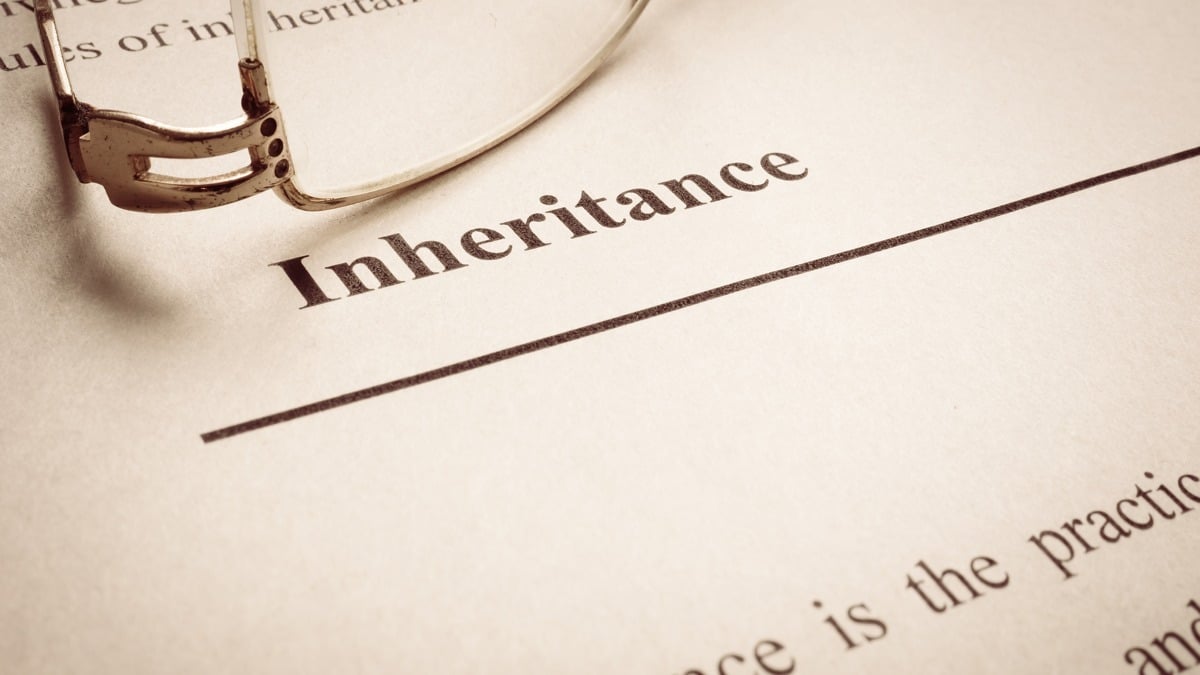In this guide
Receiving an inheritance is usually a mix of emotions. Although you’re happy about the improvement in your finances, it’s coupled with sadness at the loss of a family member or friend.
It can also be challenging working out the best way to manage the bequest.
While your first thought may be to pay off your mortgage or take a holiday, it’s worth considering putting at least some of the money away for your retirement.
Points to consider before making a decision
It’s important to carefully review your current financial situation before you decide how to use an inheritance:
- Look at things like your level of debt, income and cash flow, how much risk you feel comfortable with, and how close you are to retirement.
- List your future financial goals such as taking early retirement or travelling overseas for an extended period.
- Consider eliminating any significant non-deductible debts like credit cards and car or personal loans to reduce your financial stress level.
- Think about the cost of investing outside the super system. For example, buying shares or a rental property outside super has administration and transaction costs like stamp duty or brokerage fees, while any income or capital gains may be taxed more heavily.
There’s a lot to consider, so it may be wise to talk to an independent financial adviser. They can help you work out your financial goals and offer personalised advice about the best course of action for your financial situation.
If you decide to take the opportunity to invest for your future and you’re comfortable with locking your money away until you’re at least 60, the super system is an attractive option. Here is what you need to know.
Contributing an inheritance into super: 10 points to weigh up
1. Lowers your investment tax bill
Investment earnings in super are taxed at a maximum of 15%. This may be much lower than the personal income tax rate you pay outside super, which can be as much as 47%.
When you retire or turn 65, you can use your super to start an income stream where investment earnings are completely tax free.
To sweeten the deal further, withdrawals from super are generally not taxable when you withdraw your money after turning 60. Learn how super is taxed and review our tax guide to accessing super after turning 60.
2. Your contribution could be tax deductible
If you claim a tax deduction for personal contributions to super, you can trade your marginal income tax rate for the 15% super tax rate.
If you have a large amount to invest, you can consider spreading your contributions over several financial years to stay within annual contribution caps and maximise the benefit of your tax deduction.
3. Contribution amounts are limited
There are two types of super contributions – concessional and non-concessional. Annual contribution caps apply to both types.
A non-concessional contribution is money that has been taxed before you add it to super. This includes your personal contributions when you don’t claim a tax deduction and contributions from your spouse. The annual non-concessional contribution cap for 2024–25 is $120,000. The cap is zero if your total super balance was $1.9 million or more on 30 June 2024.
Concessional contributions are amounts that have not been taxed before being added to super such your employer’s contributions and amounts you have chosen to salary sacrifice. Personal contributions you claim as a tax deduction are also concessional. The concessional contribution cap for 2024–25 is $30,000.
These limits might seem restrictive, but there are two super rules that can help you to contribute more.
The bring-forward rule applies to non-concessional contributions and can allow contributions of up to three times the usual cap in one year. Your total super balance on 30 June determines whether you’re eligible to use a bring-forward arrangement in the following financial year and the total amount you can contribute.
For concessional contributions, the carry-forward rule allows you to use up any concessional contribution cap you didn’t take advantage of in the prior five financial years in addition to the current year’s cap. To make a carry-forward contribution, your total super balance must be below $500,000 on 30 June of the prior financial year.
4. Age limits apply
Your plans to put your inheritance into super may be challenged by the age limits applying to super contributions.
If you’re 75 or more, the only amounts your super fund can accept are compulsory contributions from your employer and downsizer contributions you make after selling your home.
If you’re 67 or more and you plan to make a tax-deductible personal contribution you need to meet the work test. The work test requires that you work for 40 hours or more in a period of 30 consecutive days at least once during the financial year that you make the contribution.
5. Access to more investment options
Large super funds offer access to a wide range of asset classes. Personal investors often find it hard to gain exposure to asset classes like overseas bonds, infrastructure, commercial and international property, private equity and commodities. Investing through a super fund makes it easier to access these assets.
6. Potential to improve social security benefits
While you’re under age 67, money you have in super is not assessed in Centrelink means tests. If you or your partner are eligible for benefits, choosing to invest some of your inheritance in super could help to retain those benefit payments while simultaneously giving your retirement savings a welcome boost.
7. You could qualify for a bonus from the government
If you move some of your inheritance into your super account as a non-concessional contribution, you may qualify for a co-contribution payment of up to $500.
8. Super isn’t easily accessible
Once your inheritance is in your super account, you won’t be able to immediately access the money. Except in very specific circumstances, super can’t be withdrawn until you turn 60.
If you plan to use your inheritance to retire before 60 or want earlier access to your investment for any other reason, investing outside super may be preferable.
9. What about the mortgage?
If you have a mortgage, paying it down with any lump sum that comes into your hands can be tempting. Repaying even some of your mortgage debt will reduce interest and potentially free up other income to invest for the future. Being mortgage-free early can also offer a sense of security and peace of mind.
Financially though, investing in your super is likely to come out ahead, particularly if you have room under your concessional cap to make deductible contributions. Tax savings and strong investment growth in super can combine to outpace the interest savings possible from repaying the mortgage.
Of course, the comparison depends on your personal situation.
10. Very high balances
Because super is such a tax-effective way to save, the government imposes additional rules on people with high balances.
One of these is the transfer balance cap (TBC). This is the maximum that one person can use to invest in retirement income streams where investment earnings are tax free. The TBC stands at $1.9 million in 2024–25. Any excess amount you have at retirement can be kept in a super accumulation account where investment returns are taxable or can be withdrawn to be invested elsewhere.
If proposed legislation is passed, super balances above $3 million will attract additional tax on their growth from 1 July 2025.
Depending on your situation, these caps could make investing your inheritance in super a little less attractive.
Get more guides like this with a free account
better super and retirement decisions.



Leave a Reply
You must be logged in to post a comment.